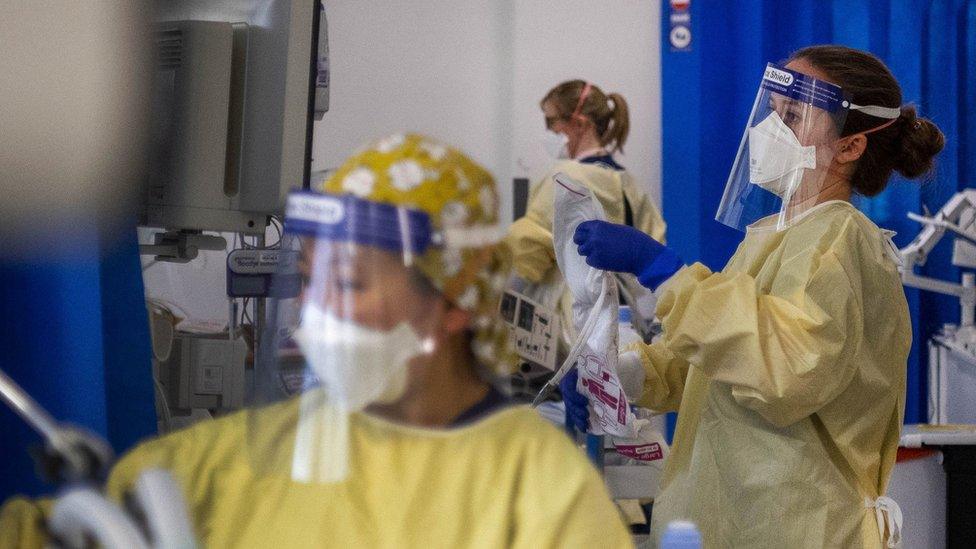Covid-19: NI medics warn of more cancelled operations
- Published
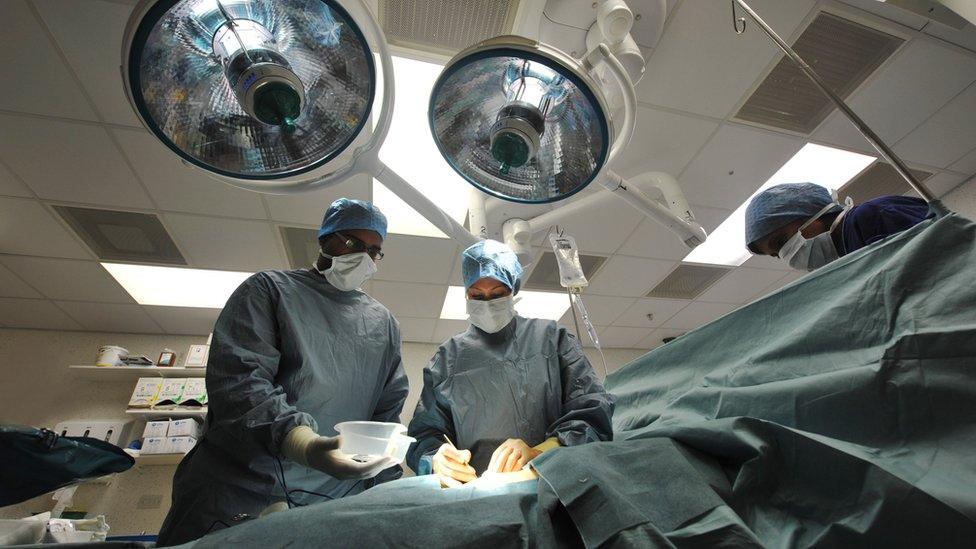
The warning about future surgery being cancelled due to Covid pressures was issued during a press briefing
Health officials have warned it is inevitable that more operations will be cancelled as Northern Ireland's health service struggles with Covid pressures.
The warning was issued by the Health and Social Care Board as senior medics appealed to the public to take up the offer of vaccination against the virus.
Medics said the pressure is coming mainly from unvaccinated patients.
They said 60% of patients with Covid-19 who are currently in intensive care have not had any Covid vaccinations.
A further 13% of Covid-positive patients who are being treated in local intensive care units (ICU) have only had one jab to date.
That means that almost three-quarters (73%) of patients who currently require ICU treatment after being diagnosed with Covid-19 have not been fully vaccinated.
A hospital doctor who specialises in critical care provision in Belfast said medics are having to treat much younger, fitter patients, with fewer underlying health conditions, during the current fourth wave of coronavirus, compared to earlier stages in the pandemic.
"Those that pass through the wards and deteriorate, who come to intensive care, are younger - much younger - and often without anything else wrong with them," said Dr George Gardiner, a critical care consultant with the Belfast Health Trust.
"So if there was a perception in previous times that this was a disease of older people or sicker people, then the virus has changed or it's simply now only got younger people left to infect."
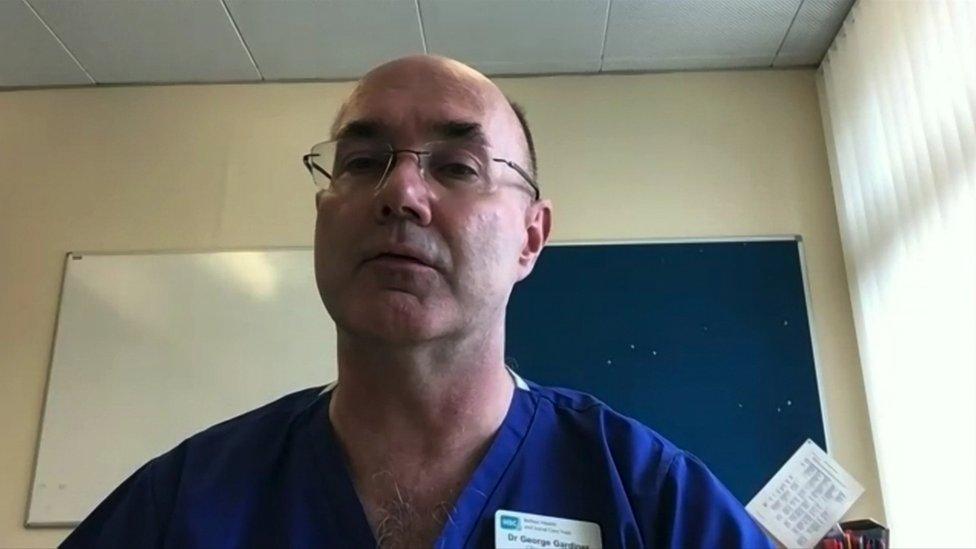
Dr George Gardiner said ICU units are dealing with younger patients during this wave
On Friday, another four coronavirus-related deaths were reported in the daily figures recorded by Northern Ireland's Department of Health.
There was also a rise in the weekly coronavirus-related death toll, as recorded by the Northern Ireland Statistics and Research Agency (Nisra).
Public heath restrictions
Earlier on Friday, Infrastructure Minister Nichola Mallon said it would be "naive" to set a date to remove all Covid-19 restrictions in Northern Ireland.
Her comments come after First Minister Paul Givan's claim that the "justification for regulations is diminishing".
He said he hoped Northern Ireland Executive ministers could agree to scrap all regulations by the end of September.
On Thursday, a number of relaxations to the regulations were announced.
These included the removal of bubbles for school pupils from the start of term, the return of full in-person learning at further and higher education facilities and changes to self-isolation requirements.
While relaxations were also made for the hospitality sector, with the previous cap of six people sitting at tables in pubs and restaurants scrapped, the executive stopped short of changing rules on social distancing.
Ms Mallon, the deputy leader of the SDLP, said the executive had agreed to follow a data-led approach in their decision-making around regulations.
She told the BBC's Good Morning Ulster programme that she did not want to see a repeat of the "very difficult and challenging executive meeting" before Christmas in 2020.
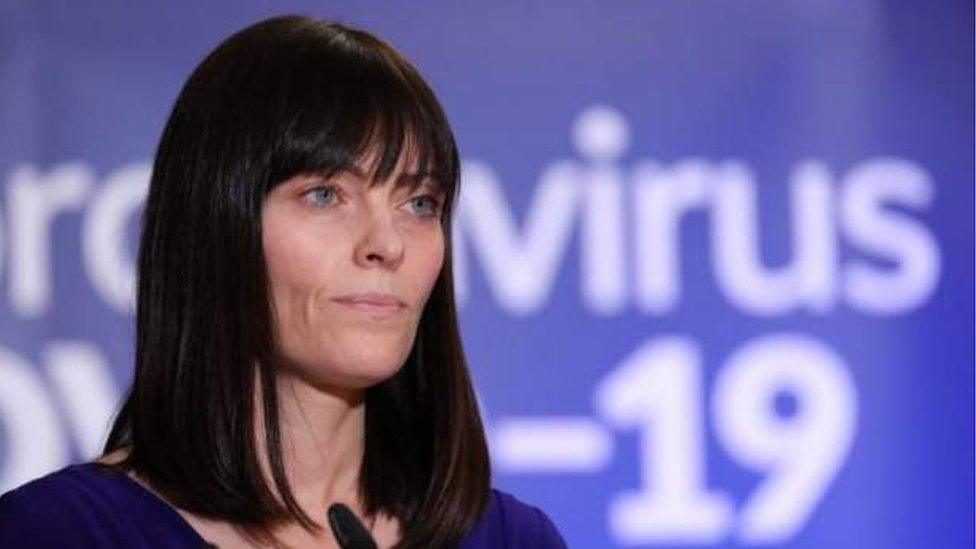
Infrastructure Minister Nichola Mallon says decisions on easing restrictions should be based on data
"People put dates out there and felt obligated to stick to them even though the data indicated that we should be doing something very different," she said.
"I will look at the data, I will make my decisions accordingly but I want to reassure people, of course I don't want restrictions in place any longer than necessary."
'This virus doesn't let go'
Public health expert Professor Gabriel Scally said plans to ease restrictions in Northern Ireland were "bizarre", given the rising Covid-19 cases in hospital.
"You can't ignore the fact that Covid-19 is growing, that cases are really high in Northern Ireland and hospital admissions are very high," he told BBC News NI's Evening Extra programme.
"It's not a sensible thing to remove all restrictions and not put in place preventive measures.
"I hear exactly what is said about how it's all down to personal responsibility now. But there are people getting very ill who have been doubly vaccinated."
Speaking to the BBC's Good Morning Ulster programme, Dr Tom Black from the British Medical Association (BMA) welcomed the latest round Covid-19 rule relaxations but urged caution.
"It's really important to let the public know, when they work hard and make sacrifices there is an award, essentially, at the end of it," he said.
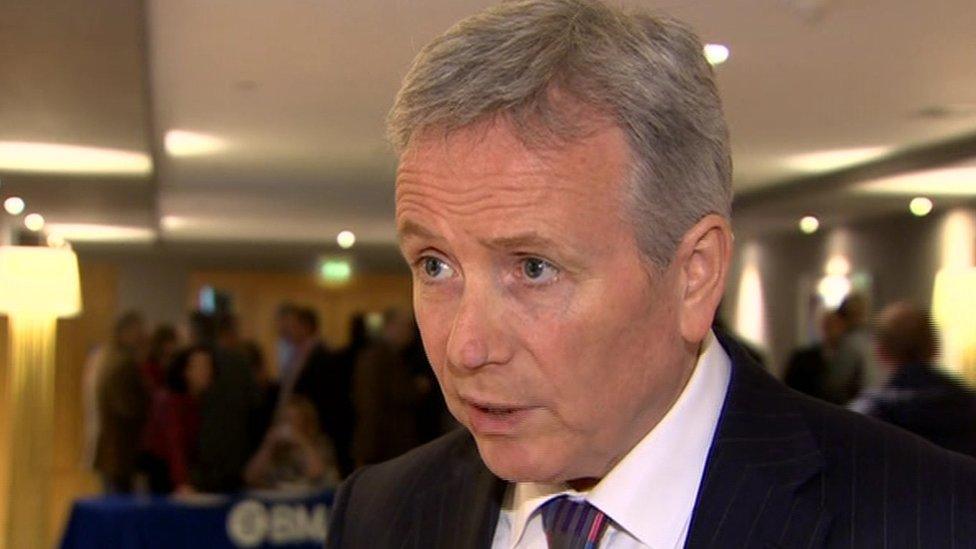
The BMA's Tom Black is urging caution
"Every time we think we're being successful against this virus we become complacent and complacency leads to failure.
"It's not sensible to say, 'In the future we're going to do this', I think what we have to do is watch the data carefully."
He said modelling suggests that the return of the school term will lead to "an increase in infection".
Pop-up clinics
Other moves agreed by the executive on Thursday include:
The limit on numbers of people allowed to meet outdoors in private gardens will be removed
Further education and higher education and night classes will be able to return to full in-person learning
So-called support bubbles will no longer exist
The rule of six - the number of people allowed to sit at tables together in hospitality venues - will be scrapped (this will also apply to wedding celebrations and receptions)
The requirement to maintain social distancing at all times on public transport will be lifted, to allow more people on buses and trains
Conferences and exhibitions will be allowed to resume
Outdoor raves will now be allowed
On Friday, the Western Health Trust announced that it is to set up dedicated pop-up vaccination clinics for pregnant women at its three mass vaccination centres, located at Foyle Arena in Londonderry, Omagh Leisure Centre and Lakeland Forum in Enniskillen.
Allow X content?
This article contains content provided by X. We ask for your permission before anything is loaded, as they may be using cookies and other technologies. You may want to read X’s cookie policy, external and privacy policy, external before accepting. To view this content choose ‘accept and continue’.

The clinics will provide Pfizer-BioNTech first jabs to pregnant women on a walk-in basis, with no appointment necessary.
During these dedicated clinics, the centres will remain closed to the general public.
The trust's head of midwifery and gynae services, Maureen Miller, said it is part of a drive to encourage more pregnant women to get the vaccine.
"It's important to stop the spread of Covid-19 and therefore we advise pregnant women and those who have delivered within the last six weeks to come along to the pop-up clinic," Ms Miller said.
It comes as figures obtained by BBC News NI in July revealed an increase in the number of those who are pregnant or have recently given birth being hospitalised and testing positive for Covid-19.
- Published12 August 2021
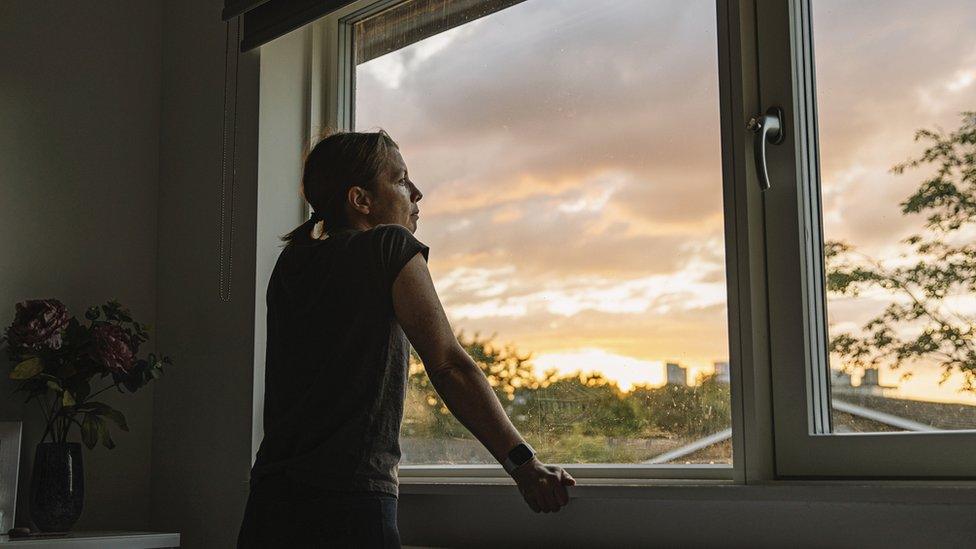
- Published8 October 2021
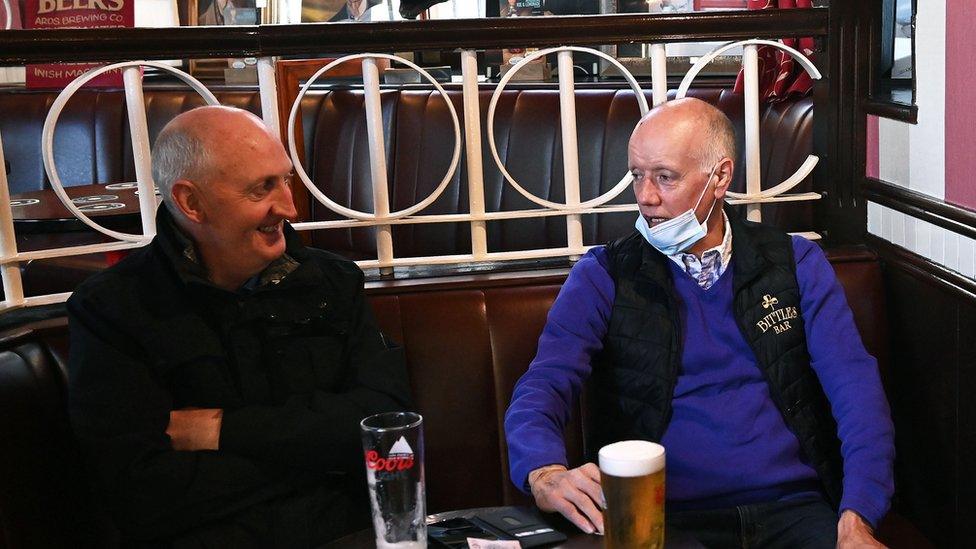
- Published7 August 2021
